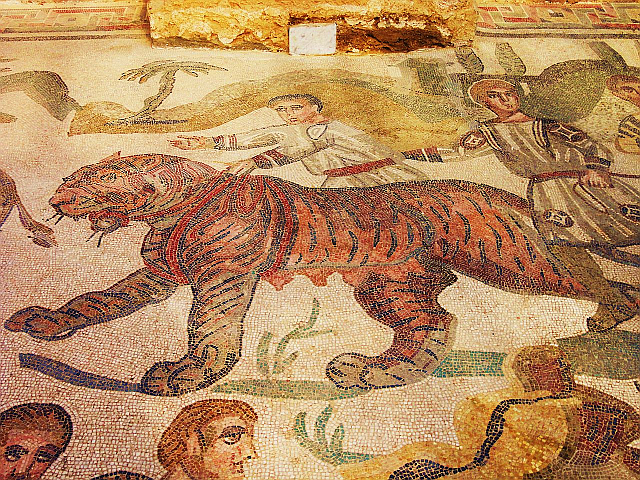
I see scarlet, green, blue, white, yellow
gardens, bushes, plains, hills and valleys;
and the birds' voices sound and echo
with sweet chords, morning and evening:
this puts in my heart that I colour my song
with a flower such that its fruit will be love
and joy the seed and the scent a shield against sadness.
Thinking, Love's fire takes me
and sweet, deep desire;
and it's tasty, the pain that I feel
and the more it burns me the more pleasant the flame is,
since Love asks his subjects to be so:
true, earnest, faithful and prone to pleading
since in its court pride harms, and flattery's prized.
But I'm not changed by place or by time,
advice, chance (good nor ill);
and if I lie to you by purpose,
may she never look upon me, the fair one
that I hold in my heart while sleeping and waking,
since I don't want at all (my affairs being pretended)
to be, without her, where most flared Alexander.
Many times my merriment is boring,
without her, and of her I will at least
tell now the fourth or fifth part
since to no other side I turn my heart,
since of nothing else I have longing or wish
since she's the greatest of all my pleasures
and I see her in my heart, even if I'm in Flandres or in Puglia.
I crave to be but her cook
so as to get such an income
that'd make me live well for more than twenty years,
so much she keeps my heart merry and happy:
I'm such a fool! what am I looking for?
since I don't want, there where riches are,
to behold what Tigris and Meander enclose.
Among the others often I pretend to play,
and the day looks like a spleen,
and it grieves me that God doesn't let me
shorten time at will,
since a long wait make the lover languish:
Moon and Sun, too long you run your course!
It grieves me that your light doesn't dim more often.
Now go, song to the one I belong to,
of which Arnaut cannot show the virtues
since for that he would have display a higher wit.
More Arnaut Daniel here.



